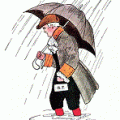Grimey grooves
Is it just me or is record cleaning essential for older records?
I'm only a part time vinyler these days, but over the weekend I used the TT more than usual. An old friend came over and we spent a good few hours going through some of our favourite tunes from when we were at uni together (20 years ago!), all etched in the black stuff.
Some of the records are in my regular analogue playlists and have been cleaned in the last year or so and sounded brill'. But some haven't and didn't. The dirty ones, likely encrusted with numerous student substances (!), sounded terrible. Indistinct and fuzzy in the "shape of the percussive event department". ;-)
I've always known record cleaning was important, but had never heard the importance so acutely.
I'm only a part time vinyler these days, but over the weekend I used the TT more than usual. An old friend came over and we spent a good few hours going through some of our favourite tunes from when we were at uni together (20 years ago!), all etched in the black stuff.
Some of the records are in my regular analogue playlists and have been cleaned in the last year or so and sounded brill'. But some haven't and didn't. The dirty ones, likely encrusted with numerous student substances (!), sounded terrible. Indistinct and fuzzy in the "shape of the percussive event department". ;-)
I've always known record cleaning was important, but had never heard the importance so acutely.

Comments
I can't help but remember that old Rega manual where they said that 'record cleaning these days is overdone'. Sorry for being a bit of a luddite, but I really can't see how washing your grooves in some kind of solution is going to be more effective than running a diamond through them at enormous pressures.
I own about 500 of my Mum's jazz LPs which have been played on God knows what in New York parties (at least three of which were attended by messrs Mingus and Davis). Other than the permanent damage thereby inflicted, all they needed was a few plays to sound right as rain
I genuinely don't know to what extent playing records a few tiimes cleans them. But. cleaning LPs on the the rellatively inexpensive device that I use (that I turn by hand and plug into my domestic vacuum) is at least faster.
In any event, to my ears Davis and mingus sound good after a nice wash!
Glad it's not just me!
And you're right about less stylus cleaning. My brush and silicon pad are feeling redundant.